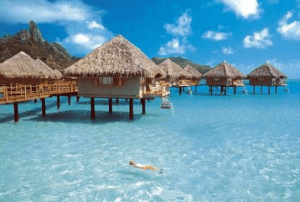SITTTSL003 – Provide advice on international destinations
In this study unit you will learn to;
- Develop knowledge of international destinations
- Update knowledge of international destinations
- Provide information and advice on international destinations
Introduction
The world is an enormous, wondrous and sometimes bewildering place. It is filled with landscapes that range from vast sandy wastelands like the Sahara Desert, to lush tropical wetlands like those of our own Northern Queensland – and everything else you care to think of in between.
Whether you like history, architecture, shopping or are someone who loves to poke their heads into old churches – somewhere in the world, there is a place just right for you.
As a travel professional, you will be called upon to deal with a great many requests – dealing with holidays all over this marvellous planet. You can’t possibly know everything there is to know about everywhere (your learning curve will continue all of your life!) but you should know the basics;
If I’m shopping along Nathan Road or in Stanley Markets, I must be in Hong Kong – If I’m sitting in a side-walk Café along the Champs Elysee, I must be in Paris and If I’m sipping a Gin Sling at Raffles Hotel – then I must be in Singapore!
These and many more “bits” of information are very important to your job in the travel industry and it is important to know where to find the relevant information.
Develop knowledge of international destinations
Customers can ask you some amazing and unusual things. They will constantly astound you with the travel destinations they wish to visit; everything from attending the Camel Fair at Pushkar, to rafting down the Amazon River and it will be part of your role to provide them with the relevant information they need to fulfill their needs.
Identify and access, current, relevant and up to date information sources
Just as the world is a vast arena filled with countless attractions so, too, is the amount of information to be found about these destinations.
Customers can, potentially, spend significant sums of money on their travel arrangements so the information you provide them on their choice of destination/s must be up to date and accurate; a customer travelling to India or South East Asia, for example, will not thank you if you send them there during the middle of the monsoon season.
Information sources can include (but are not limited to):
- global distribution systems (GDS) – this is the information system used by many operators in the tourism industry. It provides users with the ability to search information on a range of travel related products and services such as airlines, coaches, rail, cruising, car hire and hotels. The system covers timetables, availability, reservations as well as issuing tickets, vouchers and itineraries.
- computerised reservations systems (CRS) – these offer similar information as the GDS system but is restricted, mainly, to airlines. CRS is used for;
- making flight, hotel or car hire bookings
- calculating airfares and taxes
- producing tickets, vouchers and travel itineraries.
- Taking customer payments
These systems, however, can generally not be used for finding out detailed information about tourism destinations. For general, detailed, information you can access;
- government tourism authority information systems – these may be local, regional, national or international. They will provide excellent – and authentic – information about the regions they represent and data found here can usually be relied upon to be correct and up to date.
- Internet – there is an almost limitless amount of information about any tourism product or destination available on the internet. A word of warning however; not all internet sources can be relied upon to be correct. Anyone can set up a website, social media page or blog and post whatever they like – there is no requirement for the information they post to be accurate. When searching for information it is, therefore, always best to use ‘authorised’ sources such as government based tourism organisations, industry based associations, or the sites set up by tourism principles or wholesalers. ... this list is comprehensive and is continued in the learner guide….
Identify and obtain information on functional or operational feature
With so many sources of information at your disposal researching your subject may seem a little overwhelming, so it is a good idea to divide information up into relevant sections; the things you must know about the destinations they are travelling to, and the things that are nice to know.
As a travel professional you must know;
- Transport options to and from destinations, including the terms and conditions these suppliers might impose on their services.
- Booking requirements. These might relate to timeframes in which products or service must be booked and the terms and conditions under which a product or service is offered to travellers.
- Commission payable. Most suppliers of travel products and services will pay a given percentage of the product or service price to agents selling on their behalf. Travel agents, in particular, depend on this commission for their livelihood. The amount of commission paid will depend on the nature of the product or service, and the relationship between the agent and the supplier – where preferred arrangements might exist. This means that one particular supplier will pay a higher percentage in commission than another and, as an agent, you must be aware of this so that you can promote that product and earn additional revenue.
- Features and benefits of products and services. Many products and services in the tourism industry are the same or very similar to each other. As an agent you must be able to distinguish between them and provide your customers with information about the features and benefits of each supplier of a service, so that they can make an informed decision.
- Pricing of products and services. This includes having information about such things as; fares and rates, available discounts, penalties and cancellation fees.
- Schedules. You will also need to be informed about timetables and schedules of the various suppliers you represent.
… continued in learner guide ….

